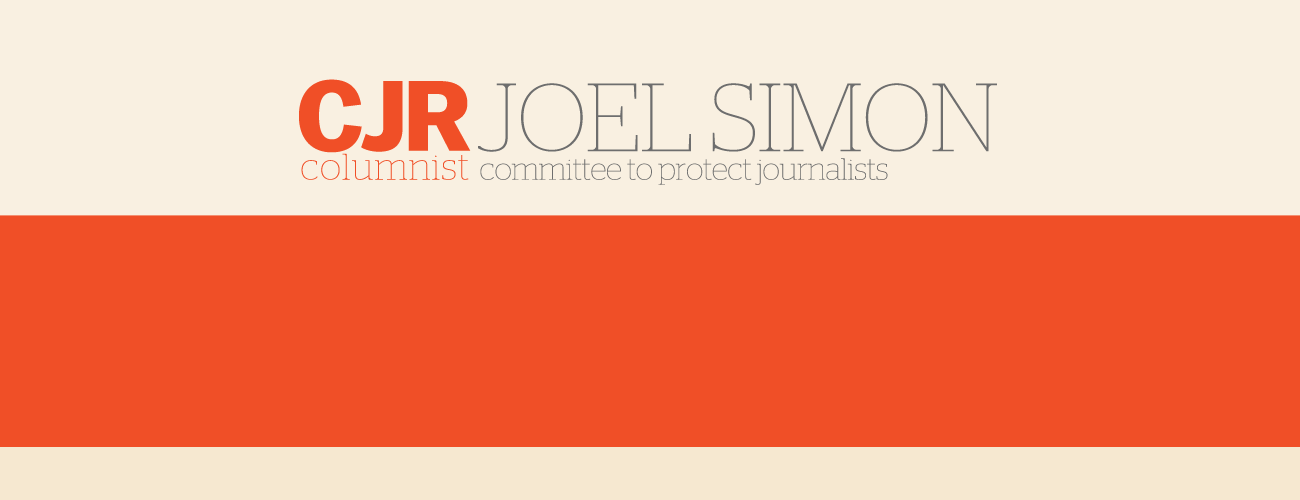Sign up for The Media Today, CJR’s daily newsletter.
Journalists working for China’s state media in the US and around the world are paid to report the news as Beijing sees fit. They underplay China’s challenges and extol its virtues. They publish Chinese government press releases disguised as news stories to undermine US positions, including the defense of pro-democracy protesters in Hong Kong.
They inform the Chinese people through their news outlets, but also provide specialized and secret dispatches to senior Communist Party officials. Some working Chinese reporters have been credibly accused of engaging in espionage. Despite this record, Chinese journalists in the US operate with freedom. Meanwhile, the Chinese government actively restricts the work of US reporters, monitoring their movements, controlling their travel, and intimidating their sources.
It’s an infuriating situation, and so it was not entirely surprising that the US State Department announced Tuesday that it has designated five state-run Chinese media entities as “foreign missions.” Because the five news organizations have been deemed to be “substantially owned or effectively controlled by a foreign government,” they will now be required to provide the State Department with the names and personal information of all of their staff and also to declare any real-estate holdings. In applying the foreign mission designation, the US appears to be on solid legal ground. But that doesn’t make it a good idea.
THE MEDIA TODAY: The misshapen pieces of Google’s disinformation magazine
While the designation is unlikely to have a material impact on reporters working for Chinese state media in the US—they will still be able to travel freely and interview whomever they wish—Beijing has reacted angrily, calling the move an example of “ideological prejudice and Cold War zero-sum game mentality.” The risk is that the Chinese government will take reprisals against reporters working for US media outlets in China, further restricting the flow of information in the midst of a global health emergency, the spread of COVID-19.
In fact, on Wednesday, the day after the US made the announcement, China ordered the expulsion of the three Wall Street Journal reporters, a move the Foreign Correspondents Club of China called “unprecedented.” While the Chinese Foreign Ministry ascribed the expulsion to anger over an offensive headline in a Journal opinion published earlier this month, the timing seems like more than a coincidence. All three Journal reporters—Deputy bureau chief Josh Chin and reporters Chao Deng and Philip Wen—have covered sensitive but vitally important stories, including official corruption and the mass detention of Muslims in Xinjiang. Deng is currently in Wuhan to cover the COVID-19 outbreak.
The expulsion of the Wall Street Journal reporters comes amidst a sweeping effort by the Chinese government to manage and control reporting on the outbreak, undermining public trust and confidence at a critical moment. The lack of accurate and timely information has also fueled wild rumors, forcing the World Health Organization to clarify on its website that you can’t get the coronavirus from your pet.
Chinese authorities initially sought to suppress news, delaying a response that might have slowed the spread of the disease. Many experts continue to believe that China is underreporting the number of infections. Several bloggers and activists who have criticized China’s response have been detained or gone missing. On February 6, Chen Qiushi a freelance video journalist who reported via video that local hospitals were struggling to handle the large number of patients, disappeared. He is likely in Chinese government custody. China is also engaging in widespread Internet censorship, disrupting the flow of critical information to those in need.
Alarmingly, the Chinese government’s approach—attempting to control and manage information—is spreading around the world as its own kind of virus. In Malaysia, authorities criminally charged a journalist who posted alarmist information on her Facebook page. The Thai Prime Minister Prayut Chan-o-cha threatened to arrest any journalist who spread “fake news” about the illness.
Iran arrested several social-media users for “spreading propaganda to scare public opinion” before finally admitting this week that several cases had been detected inside the country. Even in Nigeria, where no known cases of the virus have been reported, five television journalists were arrested and held for several days on incitement charges.
Chinese media both inside the country and around the world serve a propaganda function and it can be frustrating to see journalists working for state media in the US enjoying the legal protections extended to a free press. Yet seeking to regulate or control Chinese state media in this country is likely to be counterproductive because it turns journalists into diplomatic pawns and provides a framework that favors Chinese censors who are already seeking to control the work of the international media.
US Secretary of State Mike Pompeo condemned the expulsion of the Journal reporters on Wednesday, noting “[m]ature, responsible countries understand that a free press reports facts and expresses opinions. The correct response is to present counter arguments, not restrict speech.”
His statement would be more credible and carry more weight if he didn’t represent an administration that routinely denigrates and dismisses the work of the press, denouncing journalists as “fake news” and “the enemy of the people.” Pompeo also has some personal baggage, notably his shameful treatment of NPR Morning Edition co-host Mary Louise Kelly, who had the temerity to ask him a difficult question. A more practical response would be for the US to lower the temperature by suspending the “foreign mission” designation for Chinese state media. Meanwhile, China should restore the credentials for the Wall Street Journal reporters, and relax the censorship practices in the interest of public health.
ICYMI: A pipeline runs through Southern news deserts
Has America ever needed a media defender more than now? Help us by joining CJR today.



